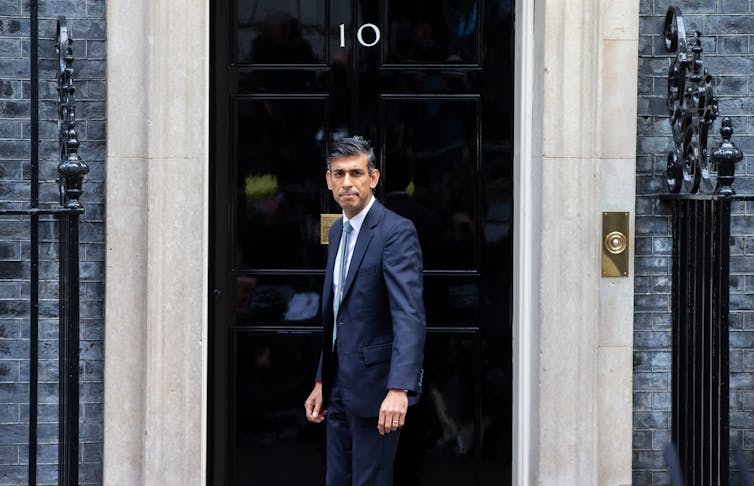Although the news that Tory party chairman Nadhim Zahawi had paid a penalty for failing to file his taxes properly first surfaced during his short tenure as chancellor from July to September 2022, his past tax affairs have come under scrutiny again more recently.
In July 2022, the Independent reported that Zahawi’s tax affairs were under investigation by HMRC. More recently, the Sun reported that the ex-chancellor, now Tory party chairman, had paid “several million” to “settle a dispute with HMRC” about whether he had used an offshore company called Balshore Investments to hold shares in YouGov. This the polling company he co-founded with help from his father in 2000 and retired from in 2010. Balshore is registered in Gibraltar and has been linked to Zahawi’s family, but Zahawi denies setting it up or using it.
Although the exact details have not been made public yet, Zahawi came to a settlement with HMRC after it found he was “careless” with his tax return. HMRC defines this as “a failure to take reasonable care in relation to your tax affairs”.
On the subject of care and carelessness, HMRC’s internal manual Compliance Handbook says:
People do make mistakes. We do not expect perfection. We are simply seeking to establish whether the person has taken the care and attention that could be expected from a reasonable person taking reasonable care in similar circumstances, taking into account the ability and circumstances of the person in question at the time the irregularity was submitted to HMRC.
The principle of carelessness is similar to that of “negligent misrepresentation” in a legally binding contract. This is when a person makes a false statement that they believe is true, but they don’t have reasonable grounds for believing that it is true.
Examples of carelessness cited by HMRC include haphazard record keeping, insufficient reading or understanding of HMRC guidelines and, most relevant in the Zahawi case, carelessness on the part of representatives employed by the taxpayer in question.
HMRC will consider many factors when deciding what constitutes careless behaviour and the appropriate level of penalty when a self-assessment return is submitted. For example:
- Was the tax issue something that the person or business would be expected to have reasonable knowledge of?
- What evidence exists that they took the time and care to look at the guidance when making a judgement on their return?
- If an agent or tax representative was appointed to assist and complete the return, did the taxpayer thoroughly check the work, and advise and correct where necessary?
- Importantly, did the person make HMRC aware of any errors or misdemeanors in their return if they were discovered later?
The severity of any penalty can be reduced if someone is co-operative and confesses before HMRC discovers a problem.
To settle the issue with HMRC, Zahawi paid the additional amount owed, plus 30% of that amount as a penalty – reportedly millions. This is the maximum percentage that can be imposed on a person for a lack of reasonable care. HMRC perhaps took the view that a person in Zahawi’s position has sufficient resources and support to get his returns correct.
More serious offences, such as fraudulent misrepresentation – when a person makes a statement that they know is not true – can carry a penalty of up to 100% of the tax due). These penalties imposed by HMRC are for cases of tax evasion, that is when someone has clearly under-declared a tax liability (deliberately or not).
Independent ethics investigation
So what now for Zahawi? No government wants any indication of careless financial behaviour, much less tax avoidance, hanging around any of its representatives. And so prime minister Rishi Sunak has tasked the independent ethics adviser Laurie Magnus to look into Zahawi’s recent interaction with HMRC.
Magnus will be looking for any possible breaches of the Ministerial Code. This covers a wide range of transgressions but among the most relevant for this situation are:
1.1: Ministers of the Crown are expected to maintain high standards of behaviour and to behave in a way that upholds the highest standards of propriety
7.7: Ministers must scrupulously avoid any danger of an actual or perceived conflict of interest between their Ministerial position and their private financial interests.
But it is more difficult to understand what exactly Magnus can do. The government is unlikely to go over HMRC’s head and examine the tax position and penalty in detail. So this leaves the issue of investigating what and when Zahawi has commented on the matter, and whether that includes any potential inconsistencies or contradictions.

Whether Magnus will look at Sunak’s own involvement and how much he knew (or didn’t know) about this matter at certain points in the timeline is another key question. And this also highlights the shortcomings of the ethics adviser role when looking into issues such as tax discrepancies. The adviser cannot independently launch their own inquiries into ministerial matters but must wait for the prime minister to request any investigation.
Just one month after Magnus’s appointment, this ongoing story threatens to expose the weaknesses in the government’s ethical scrutiny, and more importantly for Sunak, affects his ability to present a stable style of premiership following the economic turmoil of 2022.
Gavin Midgley does not work for, consult, own shares in or receive funding from any company or organisation that would benefit from this article, and has disclosed no relevant affiliations beyond their academic appointment.
This article was originally published on The Conversation. Read the original article.







